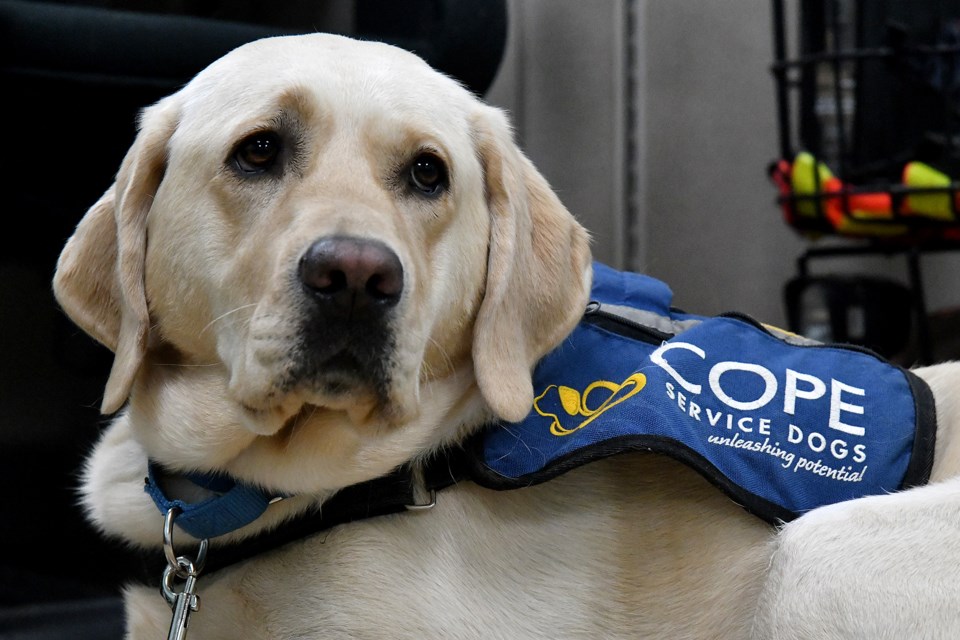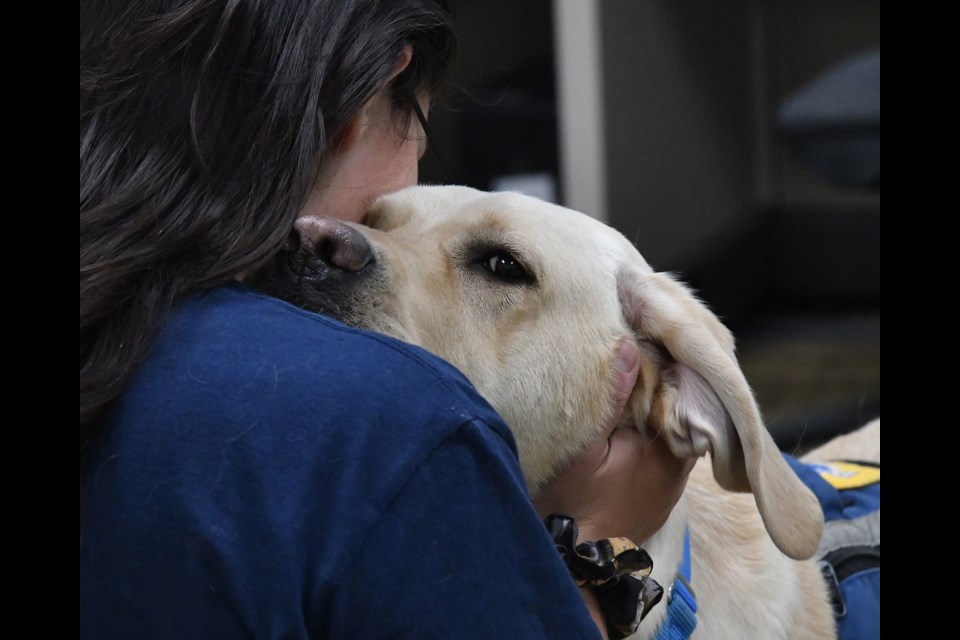And when you can do that with the help of a four-legged friend, it’s even more special.
COPE Service Dogs has been providing a specialized connection between kids and dogs for more than 20 years with its innovative Canines in the Classroom program. It focuses on student mental health in a very ‘pawsitive’ way, says Deb James, COPE’s fund development officer and event co-ordinator.
“This program matches students who are experiencing challenges in school with service dogs/puppies and teaches the students how to train them to become service or therapy dogs,” she tells BarrieToday. “Students experience improvements in mental health as they learn leadership and employability skills while earning high school credits.”
COPE — which stands for Canine Opportunity, People Empowerment — was founded i n 2000 by Jane Boake. It breeds, raises and supplies service dogs, all of which are Labradors.
Some of the activities of the student/dog teams include visiting elementary schools as reading buddies for children, visiting seniors’ residences and hospitals, and performing on stage.
“These are all things that most of the students would admit to never having had the confidence to do before participating in COPE,” says James. “These life-altering experiences are extended to the people with disabilities that become permanent partners with a fully trained COPE service dog and to the people in facilities that reap the therapeutic benefits of these specially trained dogs.”
The upside of hanging with a pooch has been documented over the years, she adds.
“Scientific research has begun to validate the importance of service dogs for people with disabilities," James says. “Pets, especially dogs, can reduce stress, anxiety and depression, ease loneliness, encourage exercise and playfulness, and even improve your cardiovascular health. Caring for an animal can help children grow up more secure and active. Pets also provide valuable companionship for older adults.”
But many of those benefits, and others, would never come to pass without the help of a legion of volunteers, she adds.
“We receive no government dollars to operate. COPE depends 100 per cent on donations, event fundraisers and from generous people to help us raise much-needed funds for the organization, training and programming,” James says.
“On average, we have about 50 volunteers working on the COPE team. We have volunteers who foster our puppies in training,” she adds. “We have puppy sitters. We have volunteer drivers who take our dogs to their training sessions and to the Canines in the Classroom programs at local schools. We have teachers, principals, parents all so giving of their time to make sure the CIC program is successful.
“And we have many groups and businesses who undertake fundraisers to help us raise much needed funds for our service dog training. We just could not function without the generosity of our many volunteers.”







